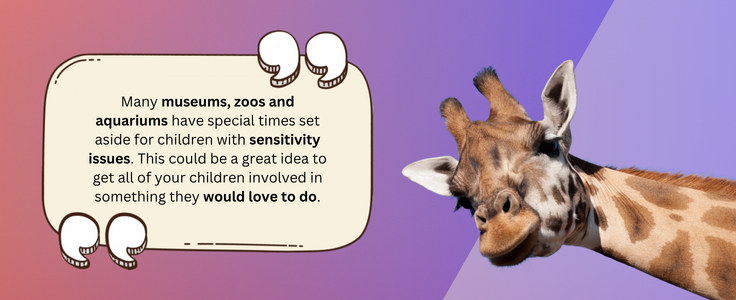Raising a Sibling of a Child with Autism: Tips for Building a Supportive Family Dynamic
Children who have autism spectrum disorder (ASD) often require a lot of extra time and support from their parents and professionals. Providing that extra attention is challenging enough for parents if it’s their only child, but becomes even more so when they have multiple children.
Autism is something that affects an entire family and not just the child who is diagnosed with the neurodevelopmental disorder — though, obviously, in much different ways for each member of the family. Oftentimes, there is a lot of anxiety and stress present in families who have a child with autism, due to the demands that come with the territory.
While the child with autism will require both extra and different attention than their siblings, parents must find a way to balance that out with the attention that their other children also require.
There are many things that siblings of a child with autism may face and feel. Understanding how to properly balance it all out, and ensure that every child is being cared for properly, is a challenge that parents face.
Here are some tips for how you can build a supportive family dynamic if you have a child with autism.
Learn more about parent involvement in ABA Therapy.
Table Of Contents
Talk About It
One of the most important things you can do as a parent of a child with autism is talk about it with your entire family. While younger children may have trouble fully grasping some of the complexities of ASD, it’s best not to try to hide or downplay the fact that they have a sibling with autism.
When you have conversations about ASD with your children, it ensures that they are given accurate information about it. This helps to reduce any confusion or anxiety they may experience if they don’t understand why their sibling is acting a certain way, or if someone else in their life approaches them about it.
These open conversations within your family unit also gives everyone the chance to embrace neurodiversity in general. Doing so will help your children understand who their other siblings are and accept them fully for that.
You can use these opportunities to not just talk about the challenges that their sibling will face, but also the great talents that they have. This will help them understand why their sibling may be different and not look down upon them because of it.
Set Aside Time for Them
All children benefit from having time one-on-one with their parents, away from other siblings. This is especially true for siblings of a child with autism.
Setting aside time for each of your children individually lets them know that they are special to you, and that they deserve that individual attention. This may sound like a simple thing, but it’s very impactful to siblings of a child with ASD.
That’s because these children may sometimes feel set aside or not as important as their sibling since the child with autism takes away so much of your time. Even if they fully understand why the child with autism needs the extra attention, the sibling may still feel slighted.
The individual time doesn’t have to be an elaborate day out, either. It can be as simple as giving them 20 minutes before bedtime where you focus on just them and talk about what they did that day, or what they want to do the next day.
Figure out Fun Activities for the Entire Family
Children with autism often have struggles forming meaningful relationships with their peers. You can help them overcome some of those struggles by helping them form strong bonds with their siblings.
A great way to do this is to figure out fun activities that the entire family can enjoy. While these activities might look slightly different than families of neurotypical children, there are still plenty of options.
Many museums, zoos and aquariums have special times set aside for children with sensitivity issues. This could be a great idea to get all of your children involved in something they would love to do.

The time that you’re spending all together as a family will strengthen the bonds between all of your children, which will go a long way in benefitting not just your child who has autism but their siblings, too.
Blue Gems ABA Integrates the Family Into Therapy Sessions
Being a parent of a child with autism can be very challenging, especially if you have other neurotypical children. Following the tips above — and many others you gain along the way — will help you balance out all of your responsibilities as a parent and ensure that all of your children are getting the attention and support they need and deserve.
At Blue Gems ABA, we help children with autism grow by administering applied behavior analysis, or ABA therapy. Our team of experienced BCBAs integrate the entire family into this treatment plan, which helps to support the child with autism more fully in real-world scenarios.
To learn more, please contact us today.




